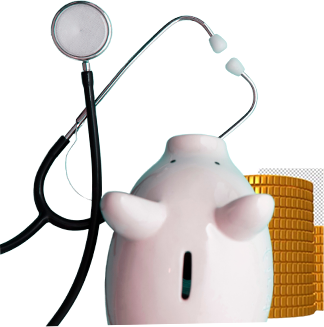PERSONALIZED DIET PLAN FROM
Best Nutritionists for Teens

Contact Us
The teenage years are characterized by curiosity, growth, and transformation when the human body changes and lifestyles shift from being a kid to an adult. Proper nutrition provides a solid foundation for healthy development during physical, psychological, and emotional changes. Coordinated efforts in managing energy levels, supporting mental focus, or even developing healthy, strong bones and muscles can all be accommodated well within proper nutrition, which in turn helps the overall shape of a teen’s life and health-in-time survival habits.
For teenagers, it’s essential to fuel their bodies with the right nutrients to support growth, development, and overall health. A well-balanced diet can help boost energy levels, improve concentration, and support physical performance. Consulting a nutritionist for teens can provide personalized guidance tailored to your unique needs.

Why Work with a Nutritionist for Teen Health?
Adolescence is a time of development, both physically and mentally. All this is done as per the body’s needs when it undergoes changes from childhood to adulthood, resulting in rapid development and demand for nutritional support. Most teenagers don’t follow balanced eating habits because they are busy, under peer influence, carried away by social media trends, and affected by stress. Such behavior usually leads to gaps in nutrition, which can affect both physical growth and mental health, and even overall well-being.
A professional nutritionist for teens knows what age-appropriate advice can help teenagers with the right food choices. The personalized diet plans designed by specialist dieticians for teens help develop healthy levels, prevent deficiencies, and build lifelong patterns for living well and gaining self-confidence.
Key Nutritional Needs During Teenage Years
A balanced intake of nutrients is necessary for teenagers’ healthy growth and development. The following are critical nutritional requirements for adolescents:
- Calcium and Vitamin D: To ensure bone density and development of the skeletal system
- Iron: Stimulates muscle growth as well as energy levels, and it is most important for girls while menstruating.
- Protein: Muscle repair, immune function, and hormone development are crucial.
- Healthy Fats: Important nutrients for brain development and hormone function.
- Fibre: Digestion and sugar levels are maintained at constant levels.
Teenagers would be at risk of weakness, poor concentration, mood changes, growth stunting, and lifelong health issues in the absence of these nutrients.

Common Diet Plans for Teenagers
Diet plans for teenagers are individualized according to their specific objectives, preferences, and health concerns. Some examples that are covered under this type of dietary approach are:
- General Wellness Plans: Aimed at balanced dietary habits so that one meets his or her overall nutritional recommendations.
- Weight Management Plans: Portion restriction, encouraging healthy weight-gaining or weight loss, and good food choices within the nutrient profile.
- Sports Nutrition Plans: A specific sports nutritionist enhances sporting performance, optimizes energy levels, and promotes recovery.
- Hormonal Balance Plans: Hormone-supportive food in managing PCOS, irregular cycles, or acne.
- Vegetarian or Vegan Plans: Ensure a source of iron, B12, omega-3, and protein.
Nutritionists and dieticians for teens offer well-planned diet plans that focus on variety, flexibility, and sustainability in supporting teenagers toward developing healthy habits rather than restrictive ones.
Recommended Foods for Teens
The right food choices made during adolescence will greatly affect growth, energy, and the state of general health. Awareness from a nutritionist for adolescents about which foods to include and which foods to limit will help to instil good eating habits in teenagers for life.
Best Foods to Eat
These nutrient-rich choices support physical development, improve concentration, and increase immunity during the teenage years.
- Dairy-fortified alternatives: Milk, cheese, yogurt, or fortified plant-based milk. So, get good calcium and a good vitamin D source.
- Lean proteins: Eggs, chicken, lentils, beans, tofu, and fish, which provide essential amino acids.
- Whole grains: Brown rice, oats, and whole-wheat bread provide a lot of fibre and sustained energy.
- Fruits and vegetables: They provide the most antioxidants, vitamins, and minerals to maintain immune function and skin health.
- Healthy fats: Found in nuts, seeds, avocados, and oily fish, which are essential for both mood regulation and hormonal balance.
Foods to Avoid
Making an effort to curb the consumption of these things can help prevent energy crashes, mood swings, and long-term health problems for teenagers.
- Sugary Beverages: Soft drinks and energy drinks spike blood sugar and contribute to weight gain.
- Highly Processed Snacks: Chips, sweets, and fast foods are of little nutritional value and, hence, cause overeating.
- Refined Carbohydrates: White breads, pastries, and sugary cereals will give teenagers energy crashes.
- Too Much Caffeine: This can lead to sleep disturbances, and a bit of anxiety can surface in the teen.
How a Nutritionist’s Diet Plan Works for Teenagers?
A well-structured nutrition plan from a nutritionist for teenagers usually arises from analysing their eating habits, activity levels, and history of diseases. After this assessment, nutritionists come up with a practical and individual plan that can be easily applied, considering how the teenager lives.
The main components of the nutrition plans include:
- Initial Evaluation: Comprehensive evaluation of dietary intake, physical activity, sleep, stress, and any medical conditions.
- Customised Meal Planning: Take into account the teens’ favourite foods, school times, and cultural aspects of food to increase adherence.
- Progress Monitoring: Regular check-ins help to track changes in weight, energy levels, mood, and performance.
- Nutrition Education: Teens learn how to make healthy choices, read labels, and plan meals independently.
This will help retrieve long-term success and also boost self-assurance in the teenager towards meeting their accountability for health.


Lifestyle and Mental Well-Being Tips for Teens
Eating healthy is not enough for a good life; a balance between lifestyle and emotional well-being is severely important in adolescence.
Key areas of focus are:
- Adequate Sleep: Following an appropriate routine of 8-10 hours of sleep would help in supporting cognitive and physical development.
- Physical Activity: At least 60 minutes of movement every day to control body weight, uplift mood, and decrease stress levels.
- Stress Management: Mindfulness techniques, journaling, and keeping open lines of communication can help teens untangle their college life from their anxiety or emotional eating.
- Body Image Support: Even for just an organ in the body, healthy adolescents’ approaches towards food and self-image are accurate.
Why Choose QUA Nutrition for Teen Nutrition?
The teen years and choosing proper nutrition from a dietitian for teens make powerful marks on one’s health, confidence, and growth. A professional nutritionist for teens who offers a systematic, evidence-based method to help tackle the unique challenges of this age group. The best nutritionists for teens understand the specific nutritional requirements during adolescence, including the importance of macronutrients, micronutrients, and hydration. At Qua, we have a team of nutritionists and dieticians for teens, helping them create customized meal plans that cater to individual preferences, dietary restrictions, and health goals.
QUA Nutrition sets stepping stones in accessing professional nutritionists who specialise in adolescent nutrition, offering a structured, evidence-based approach to the subject and addressing all the unique concerns of this age group.
- Customised Nutrition Plans: Tailored on the basis of the teenager’s age, growth pattern, and activity level, each nutrition program is designed with that particular teen’s likes and dislikes in food consideration to ensure practical and achievable goals.
- Science-Backed Expertise: This guidance is based on the most current research and nutritional standards, supporting healthy growth, development of the brain, and hormonal balance.
- Adolescents-Centric Approach: Plans are flexible and adolescent-friendly, considering tight schedules due to school, social life, and psychological needs for motivational consistency.
- Family Involvement: Parents receive education plus tools to create a supportive food environment at home to get the teenager back on track with their health goals.
- Sustainable Wellness Outcomes: Long-term well-being is the focus, and thus, habits that last into adulthood are encouraged so chronic problems and emotional eating are reduced.

Our Success Stories
Q: When should a teenager visit a nutritionist?
A: Teens who are suffering from fatigue, growth concerns, irregular changes in weight, and/or disorders in eating habits would profit greatly from a professional nutritionist.
Q: How can a nutritionist help a teenager's mental health?
A: A therapist might have recommendations about foods that would help patients stabilise and soothe their moods, as well as improve their focus, through the inclusion of various nutrients such as omega-3 fats, B-complex vitamins, and magnesium, which are essential for supporting healthy brain function, emotional balance, and cognitive performance in teens.
Q: Are diet plans available for vegetarian teenagers?
A: Definitely. Plans can be made to include a plant-based source for every required nutrient.
Q: How can a nutritionist benefit a teenage athlete?
A: That means planning meals that will help improve a person’s performance, whether it’s helping them to better tolerate their strenuous activity, giving strength, or helping them recover and repair, all with health as a priority.
Q: What part do parents play in teen nutrition?
A: The presence and influence of the parents matter a lot in creating and nurturing good eating habits, provisioning for meals, and promoting a supportive home environment.


